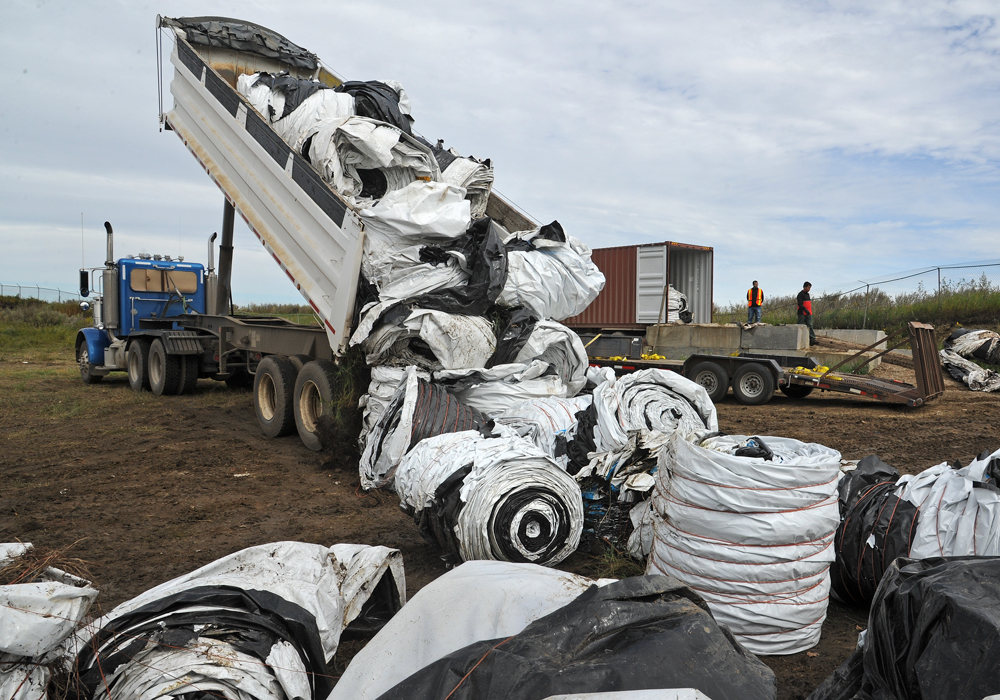Ottawa’s pending ban applies mostly to residential product packaging rather than grain bags and chemical containers
A pending Canadian ban on single use plastics will not affect most agricultural plastics, at least in the short term, according to Cleanfarms, the national organization that runs recycling programs.
Grain bags and plastic chemical and product containers are not on the list targeted for the bans, Cleanfarms said in a June 14 news release.
The federal government earlier this month announced that a ban on single-use plastics would take effect in 2021, raising questions about what types of materials would be included.
The impact of the ban on some plastics could mean more regulation of agricultural products, according to Cleanfarms general manager Barry Friesen.
Read Also

Saskatchewan dairy farm breeds international champion
A Saskatchewan bred cow made history at the 2025 World Dairy Expo in Madison, Wisconsin, when she was named grand champion in the five-year-old Holstein class.
“For example, in Saskatchewan, grain bag recycling is now required under a provincially regulated industry stewardship program,” Friesen said in a news release.
“To cover the cost of recycling the bags, which weigh hundreds of kilograms, an environmental handling fee is applied at purchase. Like the fee on the electronics that we’ve had for years, purchasers of grain bags, in this case Saskatchewan farmers, pay the handling fee when they buy or import grain bags.”
Saskatchewan farmers pay 25 cents per kilogram when buying grain bags, a recycling fee that can amount to more than $30 on a nine-foot by 200-foot grain bag.
Friesen said the federal government’s pending ban applies mostly to residential product packaging. Given attention paid to plastics, however, he does not rule out further regulation on plastics with a low recovery rate, including those for agricultural use.















